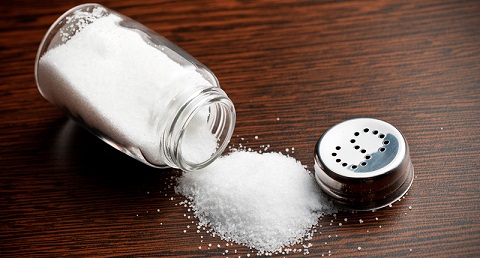Salt is described as being osmotically active and so draws water to itself wherever it is found. When a salt is taken, it is absorbed in the intestine into the circulating blood. Because of its osmotic activity, it draws water alongside into the blood thereby increasing the blood volume which invariably increases the cardiac output which is one of the factors that determines the blood pressure of an individual.
High salt intake particularly predisposes an individual to hypertension. Hypertension in the other way becomes not just a disease but also a risk for development of some other chronic diseases such as congestive heart failure, coronary heart disease, stroke, and renal failure.
Therefore, it is important to monitor one’s salt intake to reduce your risk of developing hypertension which marks the beginning of several health-related complications, if not well managed by a professional.

